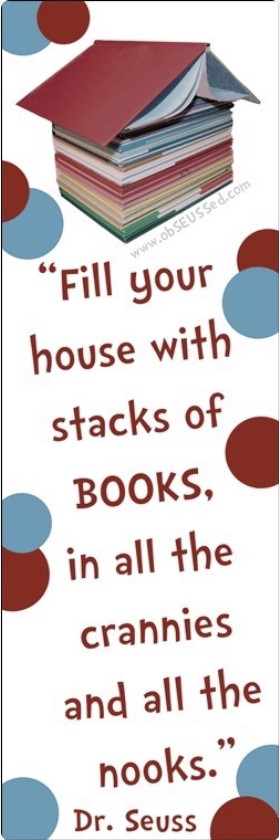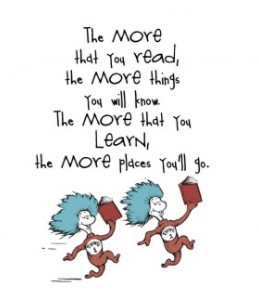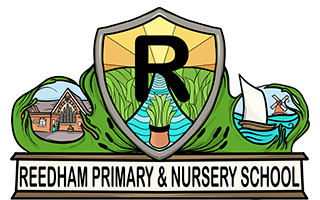
We believe that reading will enable all learners to access the full broad and balanced curriculum opportunities we provide at Reedham. We aim to inspire reading for pleasure for life-long learning.
- Reading is prioritised to allow all pupils to access the full curriculum offer.
- A rigorous and sequential approach to the reading curriculum develops pupils’ fluency, confidence and enjoyment in reading. At all stages, reading attainment is assessed and gaps are addressed quickly and effectively for all pupils. Reading books connect closely to the phonics knowledge pupils are taught when they are learning to read.
- The sharp focus on ensuring that younger children and those at the early stages of reading gain phonics knowledge and language comprehension necessary to read, and the skills to communicate, gives them the foundations for future learning.
- Language comprehension and composition are developed by talking, listening to and talking about stories, and by learning poetry and songs from and early age.
- decoding and encoding can be taught through a systematic synthetic phonics (SSP) programme.
In Spring 2022, we started to introduce the exciting new Letters and Sounds reading programme called ‘Little Wandle’ in Heron class. Mrs Bethell and her team are working hard to implement this new scheme to teach phonics.
Already, this change has had a positive effect on the children’s learning in both phonics and writing. The children have a daily phonics session with one of our specially trained members of staff. After each session, they will bring home the new sound they have learnt, along with any tricky words. For maximum impact, please spend a few minutes each day working with your child to practise these sounds and words at home.
The second part of the new scheme are the reading sessions. Children have started their group reading practise sessions at school which take place three times each week. During each session, we read the whole book but focus on a different aspect of reading.
Day 1 is decoding (sounding out the words),
Day 2 is prosidy (reading with rhythm, stress and intonation)
Day 3 is comprehension (understanding).
The books that go alongside the scheme are matched to your child’s phonic ability. If your child is not yet secure with the first 10 sounds we have taught, they will have a picture book to read. Once they are secure with the initial sounds, we move to books, which with words based on the sounds they have been taught in the phonics sessions. All groups will read the same book in all 3 sessions and this will also be the book which will be sent home on Friday (to be returned on the following Thursday). We will not be writing in their reading records, as we have our own recording tools at school but please continue to write in there every time you have read your child’s book with them.
Our new scheme promotes a love for reading and this is done by sharing books. Please continue to support us by reading with your child at home. As the aim is to create fluency, the children should be reading the book daily at home, so it is revisited several times. Because the book from the Little Wandle scheme is carefully matched to your child’s reading level, your child should be able to read it with very little support. Please do not worry that it is too easy – the aim is to develop fluency, expression and confidence. We have told the children they can even read their books to their teddies or pets! Providing lots of praise and encouragement will really help their fluency and confidence. Please do not write in the reading books. The books are new and expensive and although we have seen that some of the pages are coming loose from the staples, we want them to stay as tidy as possible. We encourage the children to treat the books with respect and look after them. Unfortunately, if any books are badly damaged or lost we will have to send a bill to parents for a replacement, so we can continue to use them in our reading sessions. Each book costs £6 and we need sets of six for our reading sessions.
Your child will also be able to select a second book from our library as a ‘high quality text’, which we ask you to read with your child and share the pleasure of a book together. These can be changed as often as the child would like. We remind them daily if they would like to have a new book, but it is their responsibility to change it. These books are to encourage your child to become a lifelong reader, as it is important that they learn to read for pleasure. Reading the ‘sharing book’ also aids the children’s language and imagination, so they not only become a good reader but also a confident writer. This
will help them in all aspects of the curriculum. Please remember, this is a sharing book and not for the child to read to you as it will be beyond their level. When reading with your child, the key to unlocking comprehension is asking them lots of questions and having discussions about what the book is about or how it makes them feel. Questions unlock thinking and discussing the pictures, predicting what might happen next, using different voices for different characters, thinking about character’s personalities and relating the books to their own lives are all fantastic ways to work on comprehension. Exploring a range of non-fiction texts is also invaluable for the children’s knowledge and understanding of the world. The main aim is to make reading FUN and the children are never too old to be read to.
For more information please follow the link below:

How can parents help at home
It is vital children have support at home, as parents you are your child’s first teacher! There are only so many minutes in the day and the more children read the more proficient they will become; and the more accessible their learning across the curriculum will be. We cannot stress enough how important your role is to model reading and enjoy it at home with your child – it really does open doors.
Here are some Little Wandle resources to support your child’s phonics learning. Please do speak to a member of staff if you have any further questions about how you can support reading at home,

Reading at home with your child doesn’t stop once they can decode the words and read them as a whole. Like any skill it needs to be practised and maintained, to achieve understanding and fluency. Please take a look at the resources below to help your child to improve their comprehension skills when reading.
Here are some interesting research articles about the importance of reading at home.
https://literacytrust.org.uk/blog/reading-children-so-powerful-so-simple-and-yet-so-misunderstood/
